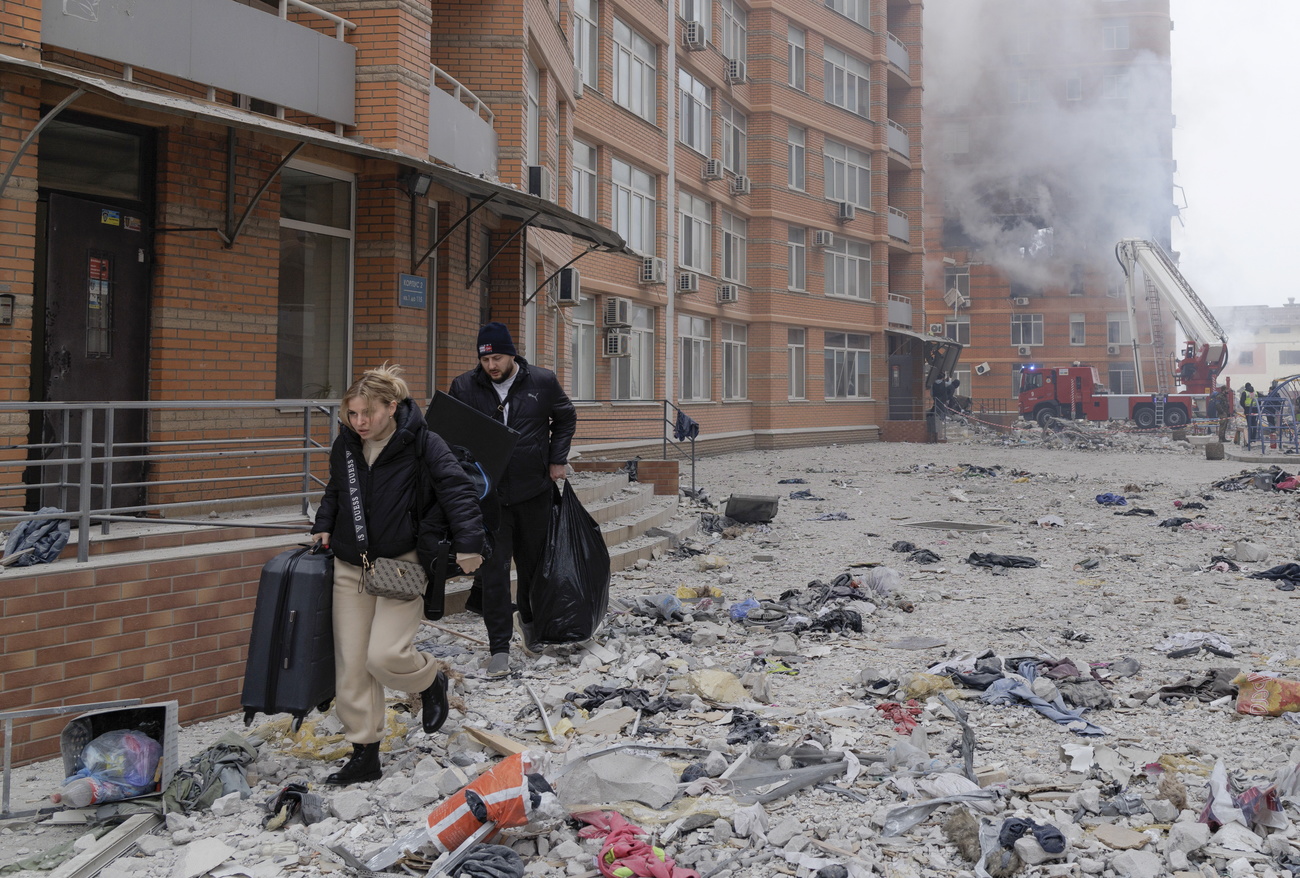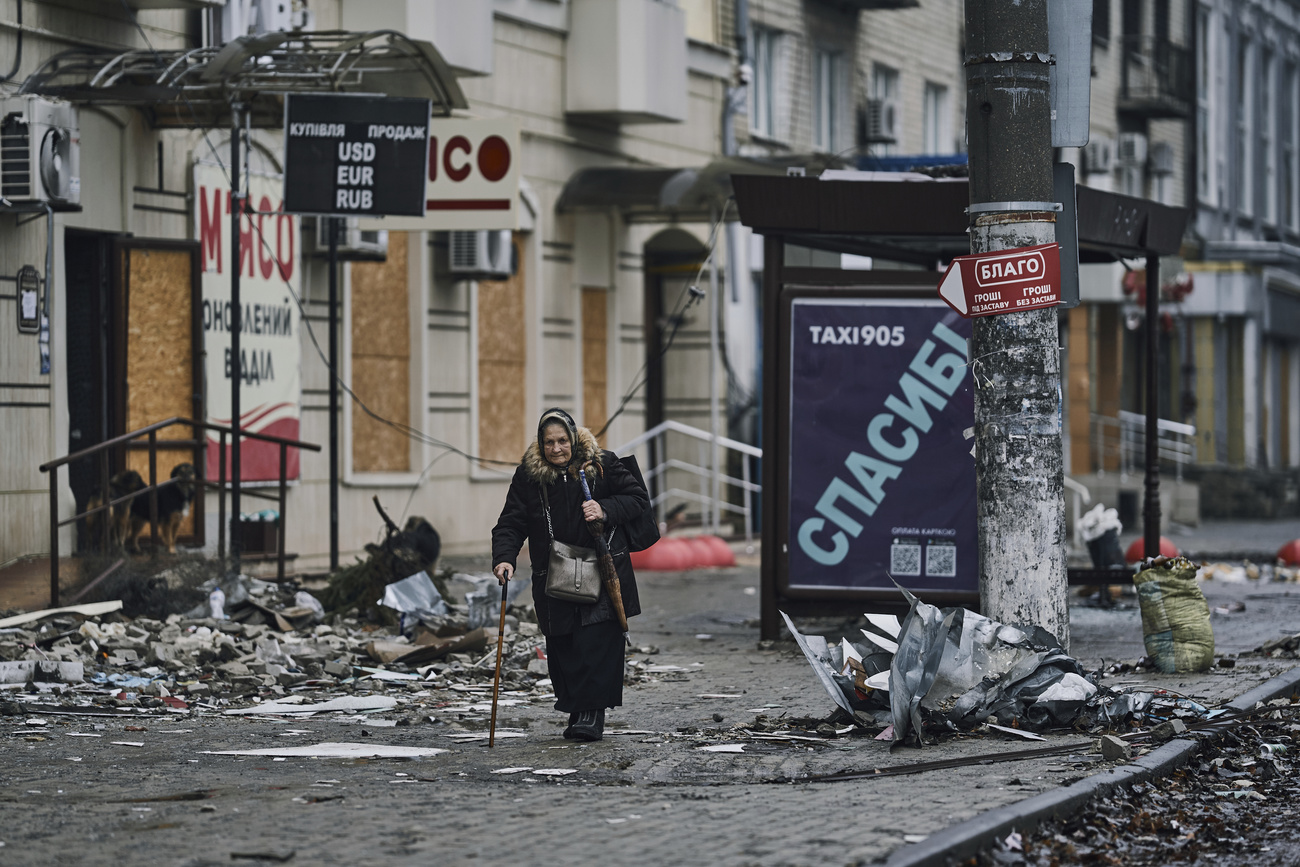
Swiss Senate Commission rejects using Russian assets for Ukraine reconstruction

Russian assets, frozen as part of the international sanctions on Moscow, are causing division in the Swiss parliament.
A Senate commission has rejected a series of motions from the House of Representatives urging the Swiss government to commit to allowing Ukraine to use these funds for reconstruction.
Last September, the House of Representatives largely adopted a series of similar motions supported by all political groups, except the Swiss People’s Party. According to these motions, the frozen assets of the Russian state and related entities should be able to be paid as reparations to Ukraine. The Federal Council (executive body), which was in favour of this proposal, should take steps to establish the necessary legal frameworks at the international level.

More
Could Switzerland seize Russia’s foreign reserves for Ukraine reconstruction?
The sanctions imposed by the West have led to the freezing of the assets belonging to private individuals, as well as those of the Russian state and of entities closely associated with the state. For the latter, it is easy to establish a link between the aggressor and the owner of the funds, since it is the Russian state itself. Therefore, according to both left and right-wing members of parliament, it would only be natural to allocate these funds as reparation to Ukraine.
However, the Legal Affairs Commission of the Senate argued that state assets are in principle protected by state immunity, which is guaranteed under international law. In addition, Switzerland is already involved in various bodies in seeking a solution to the issue of reparations in accordance with international law.
Therefore, the motions of the House of Representatives are said to offer no added value and could even restrict the government’s freedom of action in foreign policy matters, according to a majority of the commission. The commission reached its decision by 7 votes to 5, according to a press release issued on Tuesday.
On the other hand, a minority of the commission felt that by adopting these motions, the parliament would be sending a signal to the government to continue its active commitment to finding a solution that complies with international law.
This news story has been written and carefully fact-checked by an external editorial team. At SWI swissinfo.ch we select the most relevant news for an international audience and use automatic translation tools such as DeepL to translate it into English. Providing you with automatically translated news gives us the time to write more in-depth articles. You can find them here.
If you want to know more about how we work, have a look here, and if you have feedback on this news story please write to english@swissinfo.ch.

In compliance with the JTI standards
More: SWI swissinfo.ch certified by the Journalism Trust Initiative




























You can find an overview of ongoing debates with our journalists here . Please join us!
If you want to start a conversation about a topic raised in this article or want to report factual errors, email us at english@swissinfo.ch.